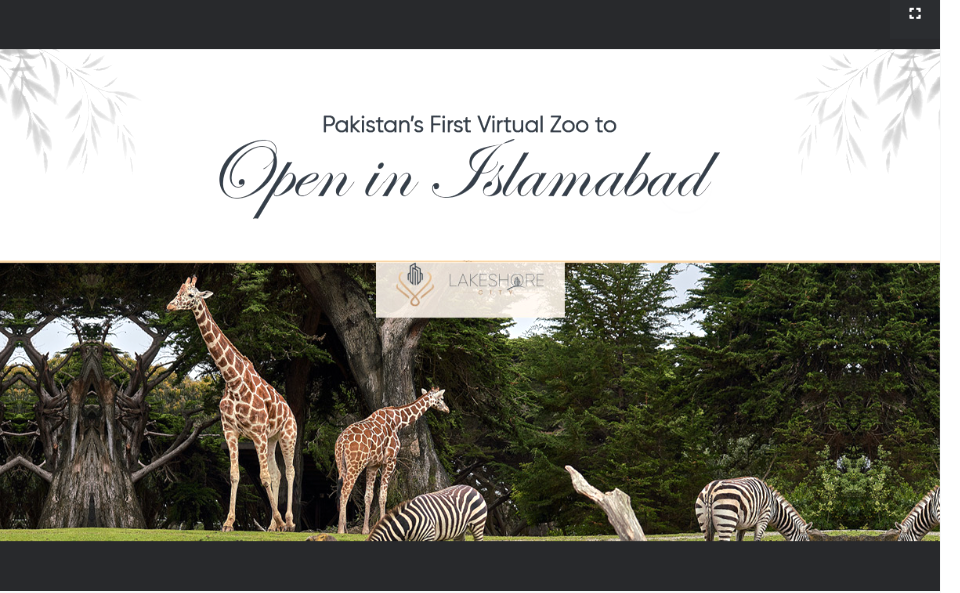Lakeshore City is set to introduce Pakistan’s first virtual zoo in Islamabad, marking a significant advancement in the country’s approach to wildlife education and conservation. This innovative project aims to utilize cutting-edge technology to create an immersive experience for visitors, particularly children, while promoting awareness about wildlife preservation.
Concept and Features of the Virtual Zoo
The virtual zoo will occupy a substantial portion of the land previously designated for the old Islamabad Zoo, which was closed in December 2020 due to animal welfare concerns. The new initiative will feature:
- Animatronic Models: Life-like robotic representations of various animals, allowing visitors to interact with wildlife in a safe environment.
- 3D Presentations: Engaging visual displays that will educate visitors about different species and their habitats.
- Virtual Shows: Scheduled presentations that will showcase animal behaviors and conservation messages.
- Documentaries and Films: High-tech films focusing on wildlife education will be screened regularly, enhancing the learning experience for all ages
- This initiative is spearheaded by the Islamabad Wildlife Management Board (IWMB) and the Capital Development Authority (CDA), who aim to foster a wildlife-friendly environment while leveraging virtual technology for educational purposes.
Historical Context
The original Islamabad Zoo, known as Marghazar Zoo, was established in 1978 and became a popular attraction, drawing around one million visitors annually. However, it faced severe criticism for animal mistreatment, leading to its closure and the relocation of its animals to sanctuaries. Notably, Kavaan, a 32-year-old elephant, was relocated to Cambodia after a prolonged campaign highlighting his plight .The transition from a traditional zoo to a virtual experience represents a paradigm shift in how Pakistan approaches wildlife conservation and public education. The IWMB has emphasized that no animals will be kept captive in chains or bars under this new model
Technological Implications
The introduction of a virtual zoo aligns with global trends in using technology for educational and entertainment purposes. Virtual Reality (VR) is increasingly being recognized for its potential to create engaging environments that can mimic real-life experiences. Experts believe that VR can significantly enhance public awareness about wildlife conservation by providing interactive learning opportunities that are not possible in traditional settings
Conclusion
The establishment of Pakistan’s first virtual zoo in Islamabad marks a promising step towards modernizing wildlife education and conservation efforts in the country. By integrating advanced technology with educational initiatives, Lakeshore City Khanpur aims to create an engaging platform that inspires future generations to appreciate and protect wildlife. This innovative approach not only addresses past shortcomings but also sets a precedent for similar projects across Pakistan.







Leave A Comment